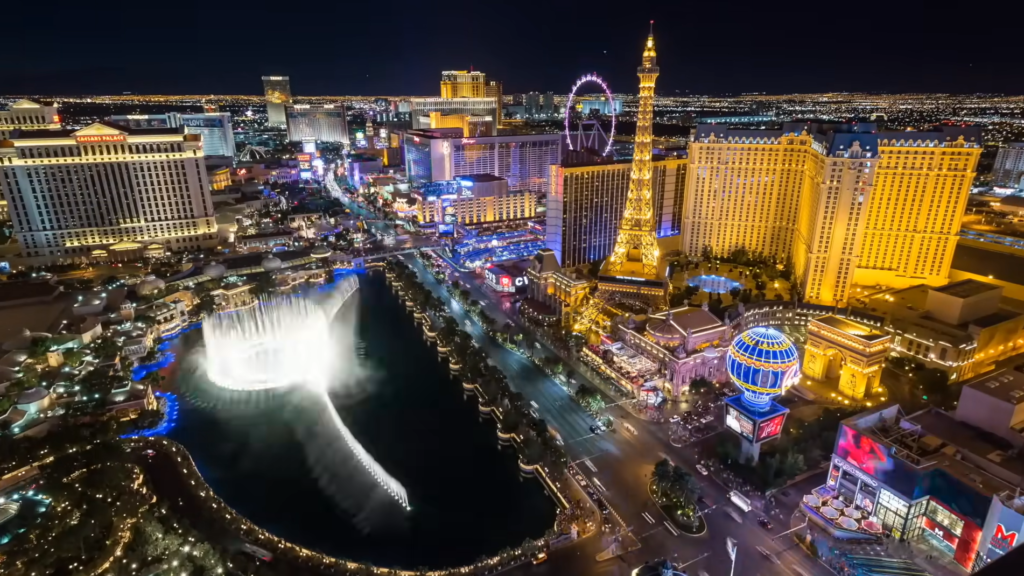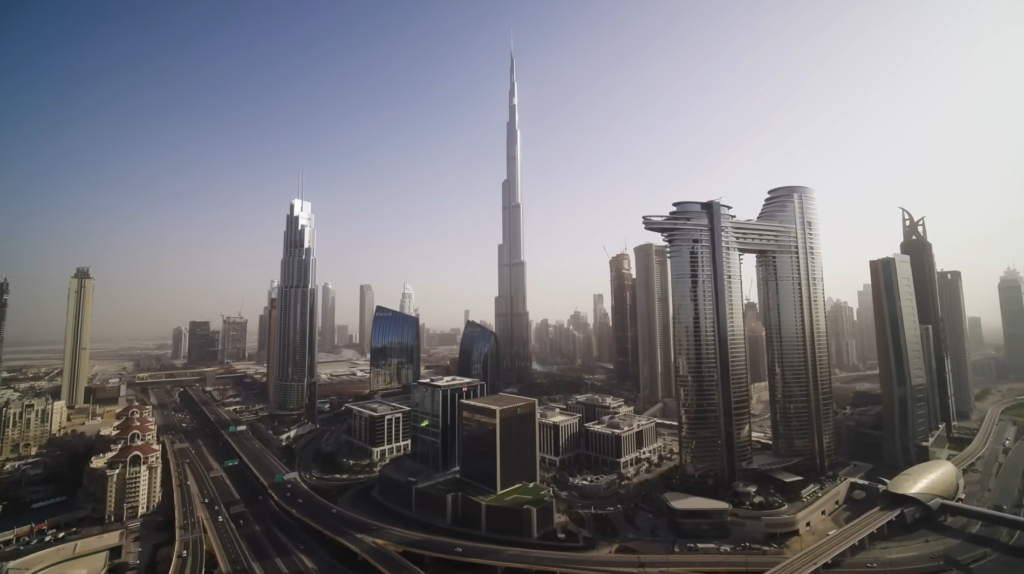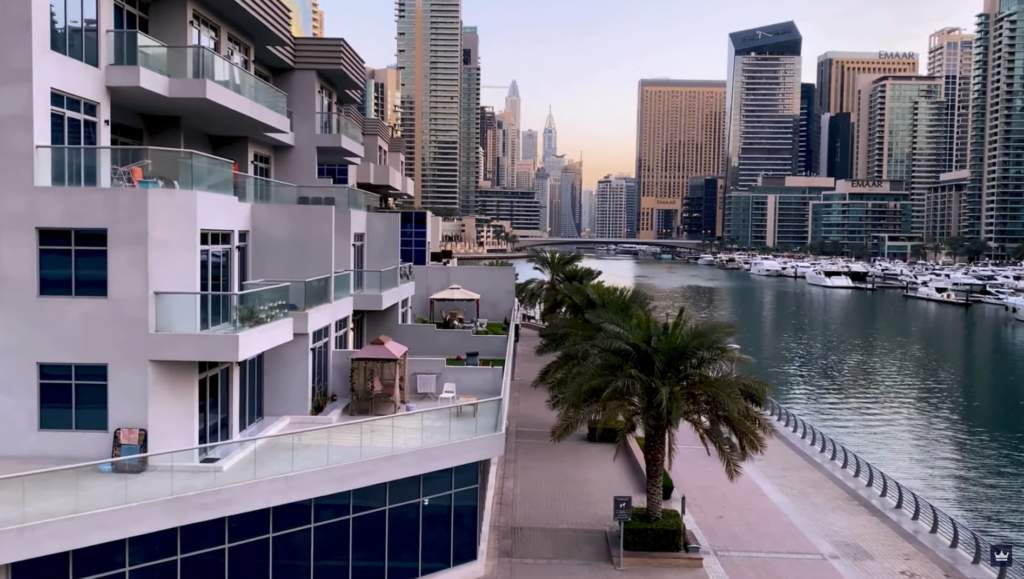
Dubai and Abu Dhabi, the two leading cities of the United Arab Emirates (UAE), are now locked in fierce competition to attract the world’s top asset managers and billionaires. Both cities, known for their modern infrastructure and luxurious lifestyle, aim to position themselves as global financial hubs. This strategic rivalry is driven by their desire to boost their economies, enhance global recognition, and secure a strong foothold in the world of international finance. Let’s delve deeper into how Dubai and Abu Dhabi are competing to attract the world’s wealthiest individuals and top asset management firms.
1. The Rise of Dubai as a Global Financial Hub

Dubai has long been the UAE’s most prominent city when it comes to attracting international businesses, tourists, and investors. Over the last few decades, Dubai International Financial Centre (DIFC) has emerged as a major global financial center, offering tax-free benefits, world-class infrastructure, and a favorable regulatory environment. DIFC operates under a legal framework based on English Common Law, which provides transparency and protection for international businesses.
Dubai’s ambition to become a global financial hub is fueled by its strategic location, acting as a gateway between the East and West. The city’s ability to offer tax exemptions, along with access to international markets, makes it a preferred destination for asset managers looking to expand their portfolios in the Middle East.
2. Abu Dhabi: A Stable and Secure Investment Environment

While Dubai thrives on its cosmopolitan allure and business-friendly policies, Abu Dhabi is taking a different approach. The capital city of the UAE, Abu Dhabi, is home to one of the world’s largest sovereign wealth funds – the Abu Dhabi Investment Authority (ADIA). With assets estimated at over $800 billion, ADIA plays a critical role in driving the emirate’s economy and attracting global investors.
Abu Dhabi focuses on providing a stable, long-term investment environment, with its oil wealth ensuring steady economic growth and financial security. The city is positioning itself as a center for high-net-worth individuals (HNWIs) who seek stability, low risk, and secure returns on their investments. Abu Dhabi’s government is keen on developing key sectors like technology, clean energy, and financial services, making it an attractive option for wealth managers and investors alike.
3. Tax-Free Benefits and Business-Friendly Policies
Both Dubai and Abu Dhabi have implemented tax-free policies that are especially appealing to billionaires and asset management firms. In a world where high taxes often eat into profits, the UAE offers a rare opportunity for investors to grow their wealth without the burden of hefty tax rates. Dubai’s DIFC and Abu Dhabi’s Global Market (ADGM) both provide attractive financial zones where businesses can operate with minimal regulatory barriers and maximum profit potential.
The UAE’s free zones offer 100% foreign ownership, exemption from corporate and income taxes, and full repatriation of profits. These advantages are further bolstered by the UAE’s extensive double taxation treaties with over 115 countries, making the country an extremely attractive jurisdiction for global companies and wealthy individuals.
4. A Focus on Diversification and Innovation
As part of their strategic plans to attract the world’s wealthiest, Dubai and Abu Dhabi are both heavily investing in economic diversification and innovation. Although oil has been the backbone of the UAE’s economy for decades, both cities are actively reducing their reliance on fossil fuels by promoting sectors such as finance, technology, real estate, healthcare, and tourism.
Dubai, for instance, has launched several innovation-driven initiatives, such as Smart Dubai and the Dubai Future Foundation, which focus on integrating cutting-edge technologies like artificial intelligence, blockchain, and the Internet of Things (IoT) into everyday life. These initiatives make Dubai a forward-looking city that appeals to tech-driven asset managers and global investors.
Similarly, Abu Dhabi has invested heavily in creating an innovation ecosystem through initiatives like Hub71, a tech hub that provides support to start-ups and technology companies. This focus on innovation and diversification ensures that both cities are future-proofing their economies while creating a favorable climate for investors seeking high-growth opportunities.
5. Luxury Living and High-Quality Lifestyle

One of the key factors attracting billionaires and asset managers to Dubai and Abu Dhabi is the luxurious lifestyle that these cities offer. From world-class infrastructure and shopping malls to exquisite fine dining and luxury resorts, both cities offer a high-quality standard of living that appeals to the ultra-wealthy.
Dubai is famous for its iconic skyline, which includes landmarks like the Burj Khalifa, the world’s tallest building, and the Palm Jumeirah, a man-made island that is home to some of the most luxurious residences in the world. The city’s vibrant nightlife, cultural attractions, and entertainment options make it a hotspot for billionaires looking to enjoy a lavish lifestyle.
Abu Dhabi, on the other hand, offers a more serene and culturally rich environment, with attractions such as the Sheikh Zayed Grand Mosque, Louvre Abu Dhabi, and several pristine beaches. The emirate is also known for its focus on sustainability and luxury real estate, with numerous eco-friendly developments and high-end residential projects designed to cater to the elite.
6. Competing Through Real Estate Development
Another area where Dubai and Abu Dhabi are fiercely competing is in the real estate sector. Both cities are constantly unveiling new, ambitious projects aimed at attracting the world’s wealthiest individuals.
Dubai’s luxury real estate market has gained international attention with projects such as the Dubai Creek Harbour, District 2020 (the legacy of Expo 2020), and the Dubai Hills Estate. These developments offer premium residential properties, office spaces, and entertainment facilities designed to cater to billionaires and global executives.
Meanwhile, Abu Dhabi is focusing on creating sustainable, ultra-modern communities such as Saadiyat Island, which is home to luxurious residential properties, cultural institutions, and top-tier educational facilities. The emirate is also expanding its Al Maryah Island financial district, which is home to some of the most prestigious international financial institutions.
7. Government Support and Regulatory Flexibility
Both cities benefit from strong government support for their financial sectors. Dubai and Abu Dhabi have introduced several regulatory reforms to make it easier for asset managers and billionaires to operate within their jurisdictions. In recent years, the UAE has relaxed residency requirements, introduced golden visas, and simplified company formation processes, allowing foreign investors to establish businesses more easily.
In addition, both cities are continuously improving their regulatory frameworks to align with international standards, ensuring a transparent and secure investment environment. The UAE’s forward-thinking policies, combined with its political stability, make Dubai and Abu Dhabi prime destinations for global capital.
8. Building a Strong Financial Ecosystem
Both Dubai and Abu Dhabi are building world-class financial ecosystems to support the growth of asset management firms and wealth managers. Dubai’s DIFC is home to over 2,500 companies, including some of the world’s top financial institutions, law firms, and consulting agencies. This creates a robust network that supports the growth of asset management services in the region.
Abu Dhabi’s ADGM offers a similar environment, providing a comprehensive platform for financial institutions to establish themselves in the region. Both financial centers are also actively promoting fintech innovations and have become regional leaders in the adoption of digital financial services.
9. Competition for Billionaires: A Race for Prestige
Attracting billionaires has become more than just a matter of economic growth for Dubai and Abu Dhabi—it has become a prestige battle. Wealthy individuals bring with them not just financial capital but also global recognition and influence. As more billionaires choose to relocate to the UAE, the country strengthens its position as a global hub for wealth management.
Dubai has historically been the top choice for billionaires due to its cosmopolitan lifestyle, ease of doing business, and cultural openness. However, Abu Dhabi is quickly catching up by offering a more discreet, secure, and sustainable living environment, which appeals to those seeking privacy and stability.
10. The Future Outlook: Who Will Win?
While Dubai and Abu Dhabi are both well-equipped to attract asset managers and billionaires, the question remains: Which city will emerge as the ultimate global financial hub? Dubai’s dynamic and fast-paced environment appeals to those looking for immediate growth and international exposure, while Abu Dhabi offers a more stable, long-term investment horizon.
Ultimately, the competition between these two cities benefits the UAE as a whole, creating a unique environment where businesses and individuals can thrive in a tax-free, innovation-driven economy. Both cities are likely to continue evolving and adapting to the changing global financial landscape, ensuring their positions as top destinations for the world’s wealthiest.
Conclusion
https://firojex.com/Dubai and Abu Dhabi’s race to attract global asset managers and billionaires is reshaping the economic landscape of the UAE. By offering tax-free benefits, world-class infrastructure, and a high-quality lifestyle, these cities are creating an environment where wealth can flourish. As the global competition for capital intensifies, both cities are positioning themselves as key players in the international financial arena, and only time will tell which will dominate in the long run. However, one thing is certain: the UAE is rapidly becoming one of the most attractive destinations for the world’s wealthiest individuals and leading asset managers.

Average Rating